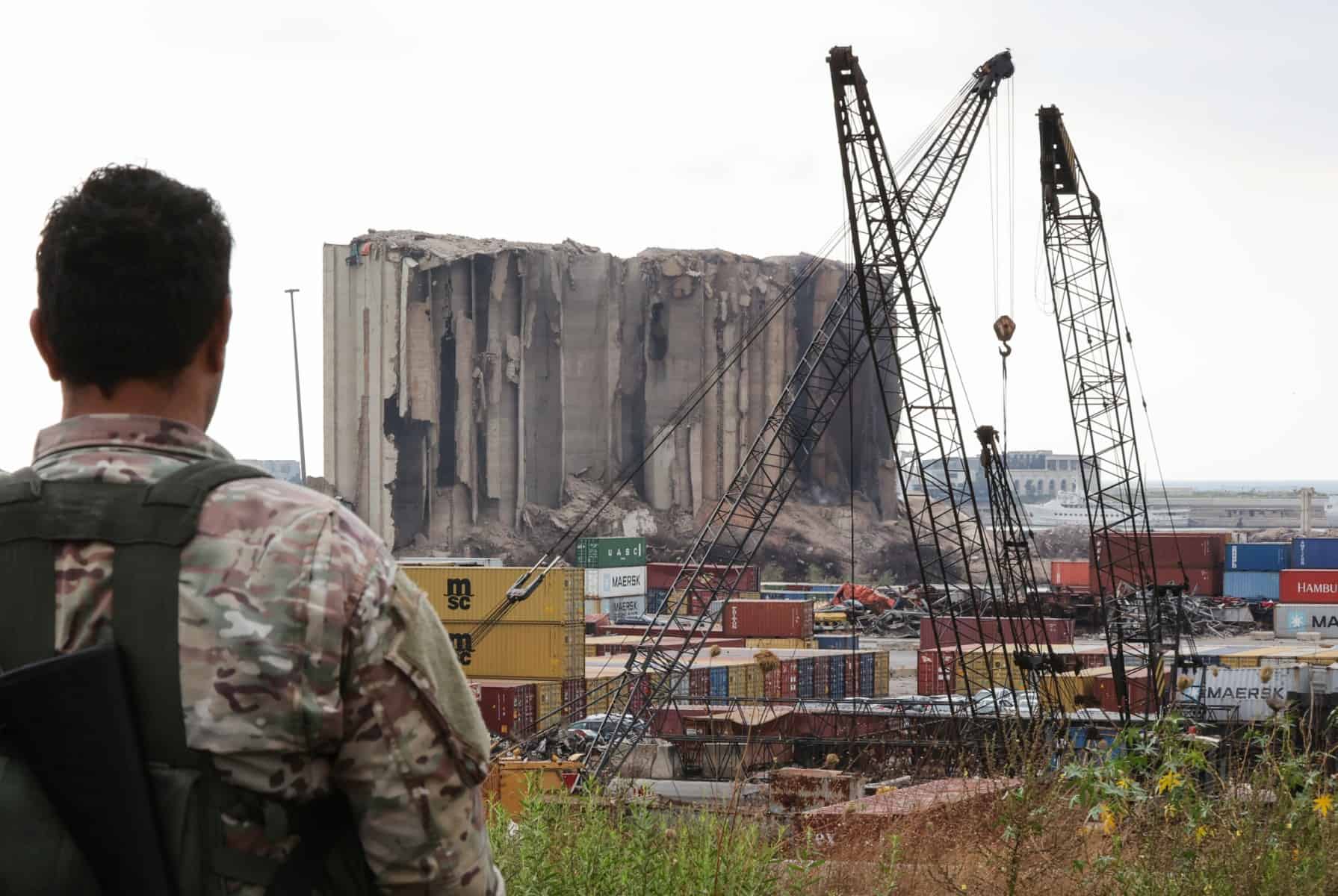Parts of Beirut’s grain silos collapsed on Sunday, just days before the second anniversary of a catastrophic explosion at the Lebanese capital’s port that ravaged the stores and parts of the city.
AFP correspondents said a cloud of dust covered Beirut’s port, while local media reported that two towers fell in the heavily damaged silos’ northern section, where a fire has been burning for more than two weeks.
Footage of the incident showed part of the silo crumbling and a large cloud billowing up after debris hit the ground.
The structure had absorbed much of the impact of the devastating explosion on August 4, 2020 at Beirut’s port that killed more than 200 people and injured more than 6,500.
The silos shielded large swaths of the city’s west from the devastating effects of the blast, which was caused by haphazardly stored ammonium nitrate fertilizer catching fire.
Sunday’s partial collapse came around two weeks after a fire erupted in the port’s northern silos due to the fermentation of remaining grain stocks along with soaring summer temperatures, according to authorities.
Lebanon’s caretaker prime minister this week warned they could fall.
“The northern group of silos are now in danger of falling,” Najib Mikati said Wednesday in a statement, which added that the silos still contained thousands of tons of wheat and corn.
He told the army to be prepared and warned workers, civil defense members and firefighters to keep a safe distance from the site.
Once boasting a capacity of more than 100,000 tons, an imposing 48-metre (157-foot) high remnant of the silos has become emblematic of the catastrophic port blast.
The government in April ordered their demolition due to safety concerns, but that move was suspended amid objections, including from relatives of blast victims who want the silos preserved as a memorial site.
The Lebanese investigation into the blast has faced systematic and blatant political obstruction from day one.
Authorities were unable to unload around 3,000 tons of wheat and corn stuck in the silos because doing so might accelerate their collapse, this week’s statement said.
The environment and health ministries advised the public to evacuate the port area and use masks in the vicinity of the silos in case they collapsed.








